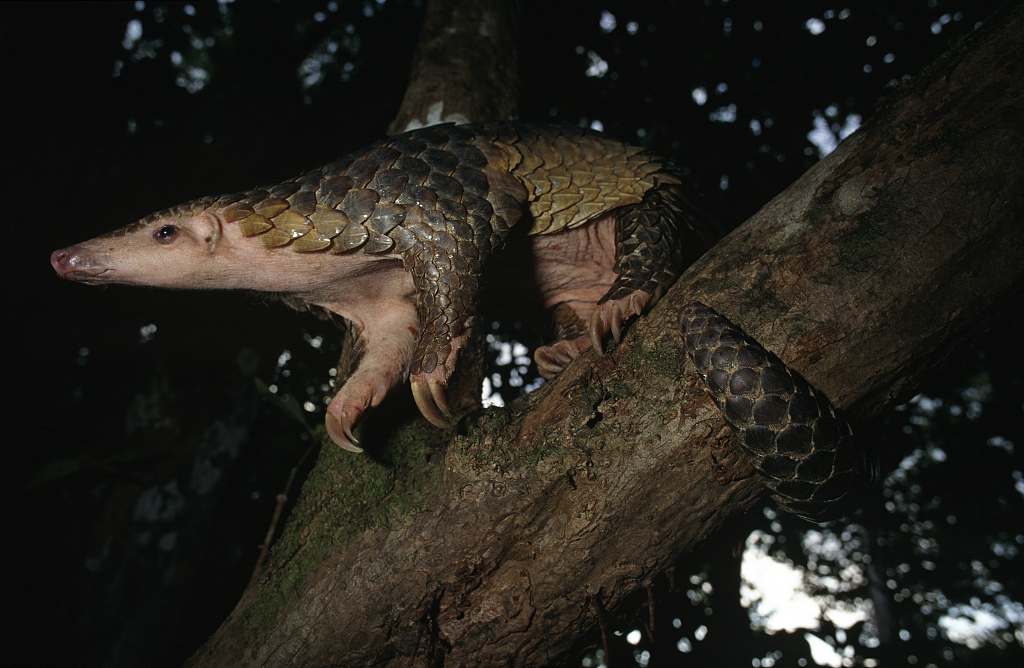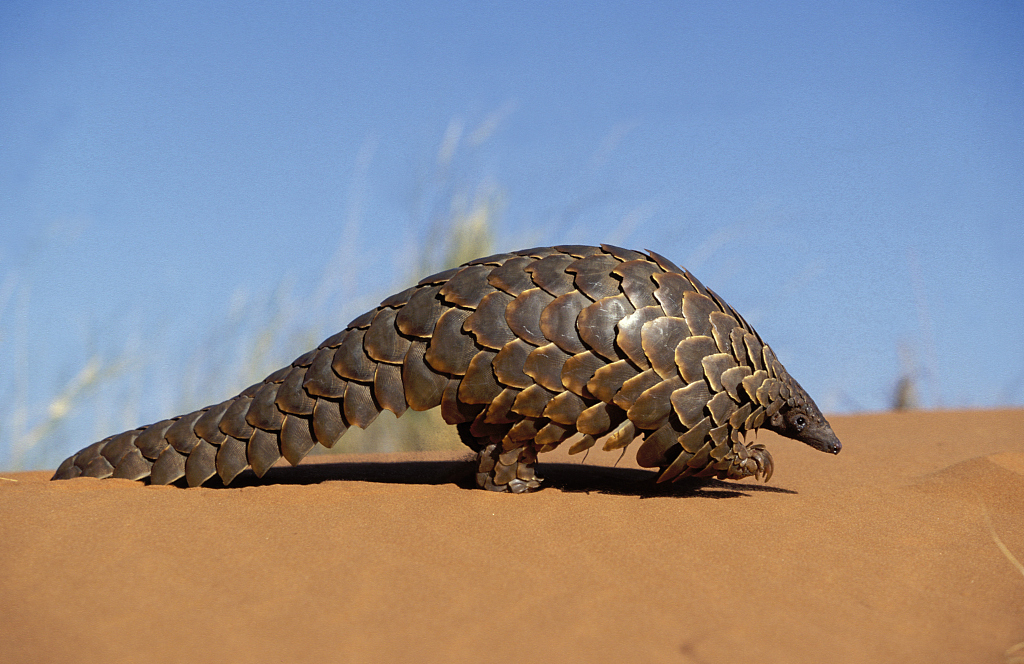Nearly 900,000 pangolins are believed to have been trafficked worldwide in the past two decades, a wildlife watchdog said Thursday, highlighting the challenge in tackling the illicit trade.
Also known as the scaly anteater, the shy, primarily nocturnal animal has been heavily poached for years in bio-diverse Southeast Asia and is being increasingly targeted in Africa.
In a new report, watchdog TRAFFIC estimated about 895,000 pangolins had been smuggled between 2000 and 2019 worldwide.
It also noted that over 96,000 kilograms of the creatures' scales were seized in Malaysia, Singapore and Vietnam between 2017 and 2019 alone.
"Not a day goes by without a wildlife seizure taking place in Southeast Asia, and all too often in volumes that are jaw dropping," said Kanitha Krishnasamy, director for TRAFFIC in the region.

Pangolins have been heavily poached for years in bio-diverse Southeast Asia. /VCG
Pangolins have been heavily poached for years in bio-diverse Southeast Asia. /VCG
Rampant trade
In 2016, pangolin was given the highest level of protection by the Convention on International Trade in Endangered Species (CITES), meaning all trade in the creatures is banned. Prior to that, trade was allowed under strict conditions.
But protection groups say the illicit business is still rampant and TRAFFIC called for stronger laws and penalties, and for authorities to shut down markets and online platforms selling protected wildlife.

In 2016, pangolin was given the highest level of protection by the Convention on International Trade in Endangered Species. /VCG
In 2016, pangolin was given the highest level of protection by the Convention on International Trade in Endangered Species. /VCG
TRAFFIC also said Thursday about 225,000 kilograms of African elephant ivory, 100,000 pig-nosed turtles and 45,000 songbirds were seized in Southeast Asia in recent years.
(All photos via VCG)
(If you want to contribute and have specific expertise, please contact us at nature@cgtn.com.)
Source(s): AFP